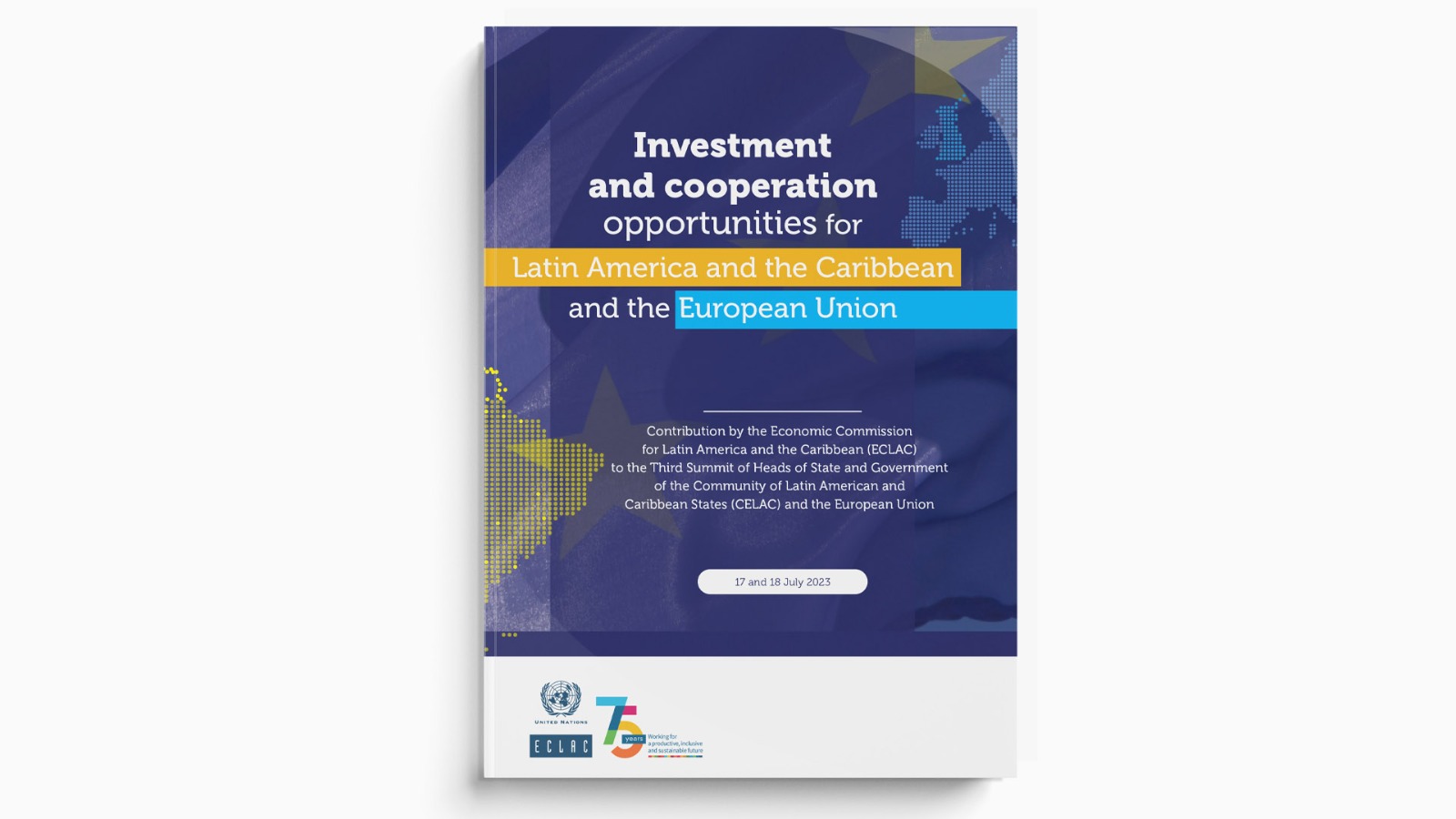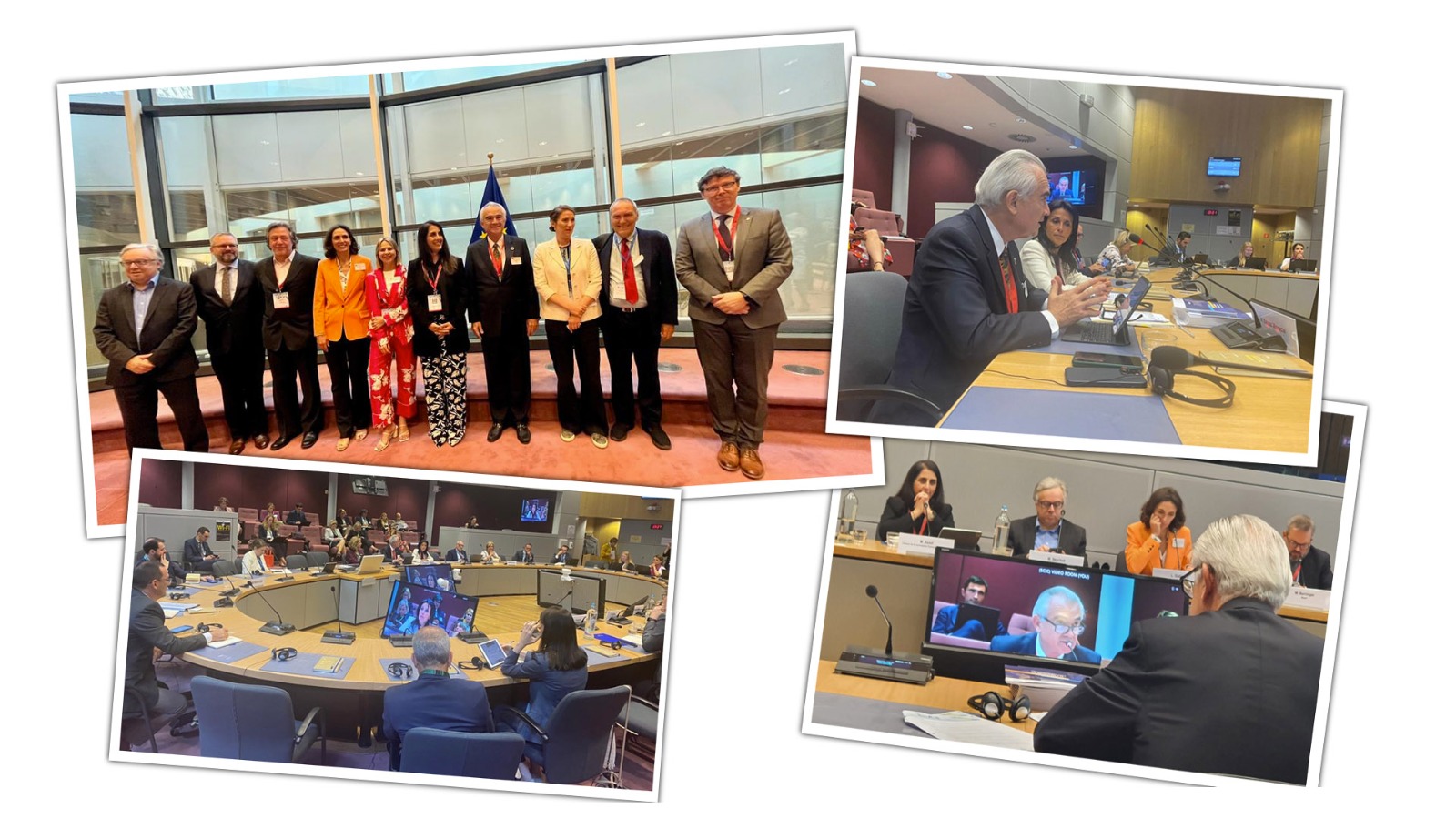ECLAC Identifies Room and Areas of Opportunity for Cooperation and Investment Ahead of Summit Between Latin America and the Caribbean and the European Union
The new document analyzes 14 areas of opportunity for boosting growth and transforming development models.

A new document prepared by the Economic Commission for Latin America and the Caribbean (ECLAC) identifies and analyzes numerous areas for cooperation and investment in strategic sectors between Latin America and the Caribbean and the European Union, while offering assessments, pinpointing opportunities and proposing work and policy agendas for expanding and deepening them in the future, with the aim of achieving a sustainable and inclusive transition.
The publication entitled Investment and cooperation opportunities for Latin America and the Caribbean and the European Union is a contribution by ECLAC to the Third Summit of Heads of State and Government of the Community of Latin American and Caribbean States (CELAC) and the European Union, which will be held on July 17-18 in Brussels, Belgium.
“ECLAC has prepared this document to contribute to a better understanding of the areas of opportunity for both blocs of countries to boost growth and employment, face the enormous challenges of the current scenario and to strengthen the call for action and international cooperation to overcome limitations, seize opportunities and create hope,” stated José Manuel Salazar-Xirinachs, the United Nations regional organization’s Executive Secretary, who will be present in Brussels during the bi-regional meeting.
The publication urges for strengthening relations between Latin America and the Caribbean and the European Union and analyzes 14 areas of opportunity for boosting growth and transforming development models, which could be part of the productive initiatives of the region’s countries and their territories in the framework of their productive development policies.
These sectors include the energy transition, electromobility, the circular economy, the bioeconomy, the geographic rearrangement of production, the pharmaceutical and life sciences industry, the medical devices industry, exports of modern services enabled by Information and Communications Technologies (ICTs), advanced manufacturing, gender equality and the care society, sustainable water management, sustainable tourism, e-government and food security.
“These areas of opportunity are merely illustrative and others could be added. All open up new opportunities, not only for investment and growth but also for international cooperation and strategic partnerships,” the document underscores.
The publication emphasizes that with regard to trade, the European Union has trade agreements in effect with 25 Latin American and Caribbean countries, a figure that will expand to 29 countries upon the signing and entry into force of the agreement reached with MERCOSUR in 2019. This makes the European Union the partner from outside the region that has the largest network of agreements in the region.
It adds that both regions are facing a turbulent international scenario, marked by tensions between the United States and China, a weakened multilateral trading system, and global supply chain disruptions prompted by the COVID-19 pandemic and the war in Ukraine.
In this context, the existing network of trade agreements is a valuable asset for both blocs, since it can strengthen their respective initiatives aimed at achieving greater strategic self-sufficiency by offering not only export opportunities but also a reliable supply of essential products.
The document stresses that boosting investment between the two blocs and bolstering productive ties can reinforce a strategic partnership that supports the countries of the region in achieving the Sustainable Development Goals (SDGs) and also supports the European Union in strengthening its international presence.
Furthermore, it emphasizes that “in a context in which all countries – in particular developed countries with vast resources – are taking important steps to reform industrial policy, it will be essential for the region not only to scale up and implement its own sectoral policies more strategically but also to forge links with the industrial policies of other countries. One way of doing this is precisely by attracting investment and cooperation.”
Finally, the publication reaffirms that “it will be key to align the investment and cooperation opportunities for the European Union and the countries of Latin America and the Caribbean with countries’ policy priorities for productive development and with their subnational strategies.”
Related content

ECLAC’s Executive Secretary Participates in European Union-Latin America and the Caribbean Business Round Table
José Manuel Salazar-Xirinachs served as moderator of a panel on how to enhance health resilience at an event being held in the framework of the third EU-CELAC Summit in Brussels.
Country(ies)
- Latin America and the Caribbean
- European Union
Contact
Public Information Unit
- prensa@cepal.org
- (56 2) 2210 2040